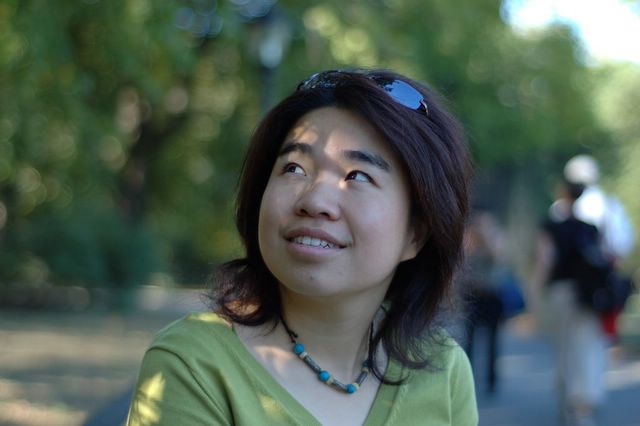 From New York Times
From New York Times
Harvard Expected to Name a Female President
Harvard’s Board of Overseers is to meet Sunday and is expected to ratify the choice, according to officials close to the process.
Dr. Faust’s ascension would come a year after Lawrence H. Summers, a former treasury secretary, resigned from the post amid fierce faculty discontent. The opposition erupted in part over Dr. Summers suggestion that intrinsic aptitude could help explain why fewer women than men reach the highest ranks of science and math in universities.
Dr. Faust is currently dean of the Radcliffe Institute of Advanced Study, by far the smallest of Harvard’s schools. Much of the research sponsored by the institute, which is named after Radcliffe College, once the women’s college at Harvard, emphasizes the study of women, gender and society.
The institute is a research organization, sponsoring about 50 fellows a year, with a staff of about 80. Its budget of about $17 million a year is barely 0.5 percent of Harvard’s $3 billion annual budget. Despite her lack of experience running a large organization, Dr. Faust was apparently perceived by the nine-member search committee as an adroit administrator with considerable people skills, a valued commodity after the polarization that occurred under Dr. Summers, particularly among women on the faculty.
The expected announcement was reported by The Harvard Crimson. John Longbrake, a university spokesman would neither confirm nor deny the selection.
Dr. Faust’s colleagues describe her as a consensus-builder, in contrast to Dr. Summers, who made many enemies on the faculty with his brash and abrasive style and his drive to overhaul a culture on the campus that some thought had become complacent.
Dr. Summers turned to Dr. Faust two years ago to help calm the furor over his remarks about women in math, engineering and science. He asked her to oversee two committees he created to come up with new ways to recruit, retain and promote women in those fields at Harvard.
“She really has the potential for being a very wise and successful president,” said Amy Gutmann, the president of the University of Pennsylvania, who was herself among several dozen potential candidates for the Harvard presidency whose names became public in December.
“Complex institutions need wise leaders with vision who can inspire collaboration for change,” said Dr. Gutmann, who had said repeatedly that she intended to remain at Penn. “And Drew has all that it takes to be such a leader. She has a strong backbone and sense and sensibility.”
Harvard will be the fourth of the eighth Ivy League universities to name a woman as its president and some of its faculty members had been hoping that it would break the sex barrier.
Speculation had grown in recent weeks among the faculty and administrators that the search committee was leaning toward Dr. Faust. Interest grew intense last week when another candidate widely believed to be a finalist dropped out of the competition.
Thomas R. Cech, a biochemist at the University of Colorado who is also president of the Howard Hughes Medical Institute, a philanthropy with an endowment of nearly $15 billion that promotes medical research, took the unusual step of removing himself publicly. Dr. Cech called The Harvard Crimson, the student newspaper, to say he had decided to withdraw because of his commitments to the medical institute and his desire to continue his laboratory research.
Dr. Faust has run the Radcliffe Institute since 2001. Before that, she taught American history for more than two decades at the University of Pennsylvania, where she had also gone to graduate school. An expert in Southern history and a native of Virginia, she has written books on Southern women during the Civil War, on intellectuals and ideology in the Confederate south, as well as a biography of a South Carolina plantation owner, James Henry Hammond.
Dr. Gutmann, the Pennsylvania president, who has known Dr. Faust for more than a decade, describe her as a deft administrator who worked collaboratively but who also had the toughness to lead a university as large, diverse and difficult as Harvard. Professors at Harvard and Penn made similar observations.
Some other faculty members, though, who declined to be identified, said they feared that Dr. Faust lacked the vision and tough-mindedness to be a strong leader.
The presidential search began not long after Dr. Summers resigned last February, facing a rebellion from the prestigious Faculty of Arts and Sciences over his management style and gaffes like his remarks about women. The faculty had already taken a no-confidence vote on him after his remarks about women and were threatening to take a second one.
Derek Bok, a former president of Harvard, stepped in to serve as interim president for this academic year. The search for a president became the talk of academia and even led to odds on an online betting site. The search committee includes six members of the Harvard Corporation, which governs the university, and three members of the Board of Overseers, a much larger advisory body that has few formal powers.
Seeking to soothe the university, the committee issued a broad appeal last spring to students, the faculty and alumni for nominees. It sifted through hundreds of suggestions and, at a private meeting in early December, the committee shared a list of a few dozen potential candidates with the 30-member Board of Overseers. The board has the authority to ratify or reject the search committee’s selection but is considered unlikely to buck a recommendation.
Dr. Faust takes over at a time when Harvard faces a number of challenges, including overhauling its undergraduate curriculum, putting a greater emphasis on teaching. Harvard is also expanding into stem-cell research and other cutting edge science on a new campus to be built in the Allston section of Boston.
Among those on the list were the three women who are presidents of Ivy League universities: Dr. Gutmann of Pennsylvania; Shirley M. Tilghman of Princeton; and Ruth J. Simmons of Brown. Three senior Harvard administrators were also on the list: Dr. Faust; Steven E. Hyman, the provost; and Elena Kagan, dean of the law school.
The women who are chief executives of other Ivy League institutions each said publicly that they were happy where they were and did not consider themselves candidates for the Harvard vacancy.
Other potential candidates who indicated that they did not want to be considered were Alison F. Richard, vice chancellor at the University of Cambridge in England and a former senior official at Yale; the Stanford provost, John Etchemendy; and Lawrence S. Bacow, president of Tufts University.


没有评论:
发表评论